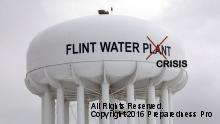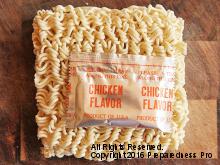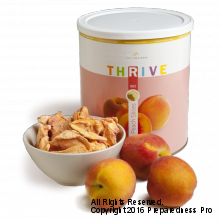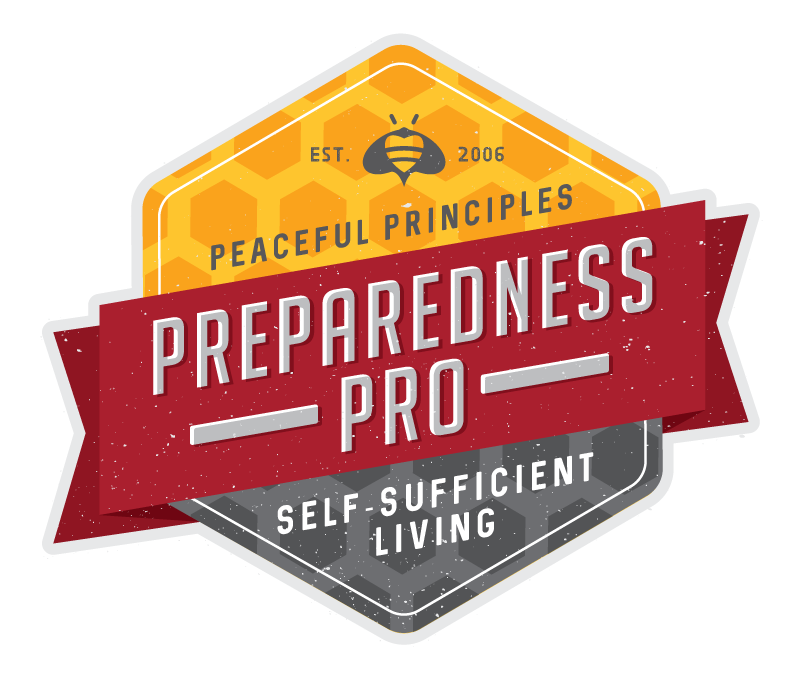I hate to break it to you, but it’s very likely that you’ve rendered your food storage completely useless by ignoring this one, critical consideration. So take a deep breath…be ready to learn… and then repent. *grin*
 If you know nothing else about me, know this: I believe wholeheartedly in approaching preparedness with an “everyday focus”. I believe firmly that if you prepare for the everyday types of scenarios, then you’ll be prepared for the more extreme crises scenarios that may come up as well. This approach enables everyone to have a more peaceful, panic-free approach to preparedness. However, having said that, there are some components of crises preparedness that may not enter into a person’s “everyday mindset” and ignoring some of these aspects can actually completely negate all of the hard work that a person puts into their food storage efforts. There are five of these common errors that I discuss in the lectures and classes that I’ve done in the past, but today I want to address the most dangerous mistake that people make when trying to prepare themselves in the area of Food Preparedness.
If you know nothing else about me, know this: I believe wholeheartedly in approaching preparedness with an “everyday focus”. I believe firmly that if you prepare for the everyday types of scenarios, then you’ll be prepared for the more extreme crises scenarios that may come up as well. This approach enables everyone to have a more peaceful, panic-free approach to preparedness. However, having said that, there are some components of crises preparedness that may not enter into a person’s “everyday mindset” and ignoring some of these aspects can actually completely negate all of the hard work that a person puts into their food storage efforts. There are five of these common errors that I discuss in the lectures and classes that I’ve done in the past, but today I want to address the most dangerous mistake that people make when trying to prepare themselves in the area of Food Preparedness.
So, let’s say that you’re like me; you have your 12 bottles of home canned marinara sauce proudly placed on your shelves along with the 12 boxes of spaghetti pasta right next to them. It gives you great pleasure and peace of mind to see that you’ve got 12 delicious meals set aside for a rainy day, or a crazy weeknight that won’t make you have to “think” too hard about what to prepare. But…what about that night that sneaks up on you in which the temperature plummets to 15 below zero; the water pipes freeze, and your brilliant plan for a delicious spaghetti dinner is suddenly thwarted because you don’t have any water set aside that you need to cook the pasta? Let’s say that night then becomes 12 nights; 30 nights; and then on to months of an interrupted supply of water as you’re used to getting it. Hmmm. Now that shelf of pasta and marinara sauce doesn’t seem quite so peace-filled and complete does it? What if your water is contaminated with high levels of lead as was/is the case in Flint, Michigan for several weeks?? What if there’s an oil spill that impacts your ability to have access to clean water? How are you going to prepare those yummy meals you have planned now?
Without going into the myriad of domino effects that would come about due to any of these types of scenarios, what I want to draw your attention to today is that every meal that you have planned isn’t complete unless you have the water you need to prepare that meal as a part of your inventory. There’s a reason why Water Preparedness is the 7th Principle of Preparedness in order of prioritization and Food Preparedness is the 8th.
Unfortunately, this is the most common mistake I notice when I get the privilege of checking out people’s state of readiness. It always rattles me, to be honest with you. My mind conjures up terrible scenes of blindsided suffering when I see that critical lack of preparedness. I think there’s nothing worse than to feel SO ready only to HAVE to RELY on that state of readiness and then find out…Oops. Not quite ready. But if you think about it, it’s obviously delusional for any of us to think that just because we have the spaghetti sauce and the pasta, we’ve got a meal covered in our food storage. If you want peace of mind, then make sure that you have the water that’s needed to actually prepare each meal you’re stocking because anything else is just wishful thinking and wishful thinking is NOT a viable plan for self-sufficiency.
 You know what’s the saddest state of “food preparedness” that I’ve ever seen? A girlfriend of mine—she’s known me personally for DECADES—and she gleefully shows me her 180 packages of Ramen noodles stuffed in her “food storage” without any water or even a water PLAN to go along with those Ramen noodles! Ouch! Obviously, that’s wrong on SO many levels—not the least of which is a complete lack of nutrition and “have you not been listening to at thing I’ve said over the years, woman?!” I hate to admit this, but I’ve had just plain, dry Ramen noodles before. They do NOT taste good without being cooked! (OK. OK. I’ll tell you why I had dry Ramen noodles. It was in the Philippines. The power was out. The water wouldn’t come out of the sink and the water pitcher hadn’t been refilled and I was stinking hungry. So I decided to try some “raw” Ramen noodles—never to be repeated again. *grin*)
You know what’s the saddest state of “food preparedness” that I’ve ever seen? A girlfriend of mine—she’s known me personally for DECADES—and she gleefully shows me her 180 packages of Ramen noodles stuffed in her “food storage” without any water or even a water PLAN to go along with those Ramen noodles! Ouch! Obviously, that’s wrong on SO many levels—not the least of which is a complete lack of nutrition and “have you not been listening to at thing I’ve said over the years, woman?!” I hate to admit this, but I’ve had just plain, dry Ramen noodles before. They do NOT taste good without being cooked! (OK. OK. I’ll tell you why I had dry Ramen noodles. It was in the Philippines. The power was out. The water wouldn’t come out of the sink and the water pitcher hadn’t been refilled and I was stinking hungry. So I decided to try some “raw” Ramen noodles—never to be repeated again. *grin*)
When I have ingredients assembled in my 4 gallon buckets or on the shelves, I don’t consider those meals complete and a part of my Food Preparedness inventory unless I have the water sitting in reserve as well. Sometimes that water is in the form of an empty 2 liter bottle that I’ve repurposed for water storage and sometimes it’s earmarked in my 5 gallon or 55 gallon water barrels. I keep track of ALL of my water and have it allocated for specific uses (recipes, hydration, hygiene, and first-aid). If I have 5 recipes of spaghetti with a marinara sauce in a bucket, then I also have 4-6 cups of water for EACH recipe set aside to prepare that dish as well. You can bet your bottom dollar that if I have food supplies that are expected to give me peace of mind, that peace of mind only comes when I know I have the water that’s necessary to prepare that meal.
 Here’s another rude awakening, Friends. All of the freeze-dried food that you’ve invested in is absolutely USELESS unless you have the water to reconstitute it! Oh, you plan on eating it just raw “if you have to”? Great. But unless you want to die of diarrhea, (which is a bona fide killer in parts of the world where water is not abundantly available) you’d better at least plan on having enough water to hydrate your digestive system after you eat any freeze-dried or dehydrated food, Friends. If you’re eating freeze-dried food, you’ll need to not only consume enough water to keep yourself minimally healthy, but you’ll need to ADD to your water consumption to offset the water than your freeze-dried food will need to digest properly. (By the way, dehydrated food requires more water to reconstitute and/or to digest properly). I can’t stress enough how this is a very dangerous oversight.
Here’s another rude awakening, Friends. All of the freeze-dried food that you’ve invested in is absolutely USELESS unless you have the water to reconstitute it! Oh, you plan on eating it just raw “if you have to”? Great. But unless you want to die of diarrhea, (which is a bona fide killer in parts of the world where water is not abundantly available) you’d better at least plan on having enough water to hydrate your digestive system after you eat any freeze-dried or dehydrated food, Friends. If you’re eating freeze-dried food, you’ll need to not only consume enough water to keep yourself minimally healthy, but you’ll need to ADD to your water consumption to offset the water than your freeze-dried food will need to digest properly. (By the way, dehydrated food requires more water to reconstitute and/or to digest properly). I can’t stress enough how this is a very dangerous oversight.
I can’t stress enough that this is not an excuse to panic. We simply don’t do that here at Preparedness Pro. But it should put this issue in the forefront of your mind so that you can have a well-founded sense of peace in your preparedness efforts. You don’t need to go out and go into debt for 250 gallon water tanks right now. Just start with what you’ve got. Do you have a bunch of empty canning jars? Fine. Start with them. Fill them up with water and let them earn their room and board in your house. *grin* Recycle those juice bottles or soda pop bottles. That plastic won’t last as long as the thick plastic you get with water barrels, but at least it’s a start! (DON’T use milk cartons though—those are intended to disintegrate quickly). OK. So get busy so you can complete all of those great meals you planned on having on hand in the event of a crisis.
Recommended Products Related to this Article:
Water Bricks
Super Tanker
Aquamira Water Storage Set
Battery Operated Water Syphon Pump
Category:
© 2019 Of COURSE this post is Copyright Protected by Preparedness Pro. All Rights Reserved. NO portion of this article may be reposted, printed, copied, disbursed, etc. without first receiving written permission by the author. This content may be printed for personal use only. (Then again, laws are only as good as the people who keep them.) Preparedness Pro will pursue all violations of these rights just as vigorously as she does any of her other freedoms, liberties, and protections.




Comments
How do feel about the small
How do feel about the small Berkey water filter systems?
Something is better than
Totally agree! Water is a
Totally agree! Water is a must. We have a barrel system in the garage that gets changed out every six months. In addition when I can my tomatoe sauce I use a steam juicer to separate the water out of the sauce and I can that separately and cook the noodles in that. Waste not want not.
I have been saving empty wine
I have been saving empty wine bottles/jugs for years and the cases they come in (I buy wine by the case). I fill the bottles with water, put in a new cork (Walmart carries corks) and put it back in the case. Cases are stacked and stored in the basement. You can refresh old water by aerating it (pour back and forth from one container to another) when you are ready to use it. You can also add one drop of bleach at the time of filling and it won't need changed out later.
Also, invest in a good gravity water filter (I have the Aqua-Rain because it comes with two ceramic filters.) Aqua Rain is carried by Amazon.
I also have a non-electric stove top distiller.
I have a deep well and can access the water a couple of ways. Both are labor intensive to set up, and am reserving that for long term use.
If I am run off my property by whoever, I have a portable backpack water filter that will filter a bottle of water at a time. It also has a mini-ceramic filter in it.
Get some head knowledge on how to get water in primitive conditions. Watch some good Army survival videos. YouTube is full of survival videos on water collection. You can tie a clear plastic trash bag around leafy tree limbs and collect enough water in the bag to fill a glass. You can tie cloths around both legs and walk through a dew laden lawn or field, wring out the cloths and collect water that way. You can make a solar still and collect it out of the air. A friend of mine was ex-Special Forces and he had bottled water cached all over the country in the ground so he could dig it up later. All caches were within one days journey on foot. He said he even had caches in the desert. If you have never thought of caching before and don't have any property of your own, get inventive. You can bury a small lidded bucket somewhere that only you know about.
If you can get to any water source, you can filter it and boil it and use it. Live in a city with a river running through it? What about a swimming pool near by or a lake or pond? Without any purchases, you can filter water through a 5-gal bucket with layered sand, gravel, charcoal (real stuff, not brickettes) with a layer of straw on top (to filter out big stuff, like twigs and leaves first). Put a spigot in the bottom and you're in business. Don't know how to find charcoal? Make your own. There are excellent YouTubes on how to make charcoal.
This is a point of prepping
This is a point of prepping that is certainly missed by a lot of people. I haven't thought about holding the water needed for specific recipes. Again it's a point you made a few years ago that registered with me about using liquid from canning to cook other food in. My next major prep addition (planing) is a large water container. We will stay put unless it's a tornado hit or fire, so I am optioning for a water storage system. Thanks for the encouragement and jolt! God bless.
Way to go, Diane!
welcome back home to the
welcome back home to the family the Berkey is the only one that has been out there & most of us have as far as I know. I have only heard of this Aquamira sys over the past year.
sandy
Sorry, but Berkey is one of
Hi Kellene - You mentioned
Hi Kellene - You mentioned Aquamira water filter systems. I thought Lifestraw was a much better system, filtering smaller articles. Why do you prefer Aquamira? Thanks!
Aquamira executives truly
I think having a really
I think having a really educated understanding of what it takes to process contaminated water is crucial. There are so many ways we could be without water. I like the indefinite shelf life and the large number of gallons of treatment of polarpur (yes you can still get it-just costs a little more) and then a well manufactured filter like Berkey black with arsenic/cl, F, and other nano particle removal as one system and then pressure cooking water and then filtering it, or using a good alternative energy distillation and then filtering it like this http://nonelectricdistillers.com/products/nonelectricdistiller.html
(you can triple distill in this and they have added an end filter to ensure any inert gas escaped will get caught-makes it certainly safe for IV water)------I use polar pur and the little travel berkey when overseas-----when backpacking I use polar pur and a good portable hand filter or straw filter---I think the main thing is to inactivate any neuro type toxins, and harmful microbes either by chemicals or heat and then filter out harmful chemicals and particles---you don't hear about inactivating neurotoxins, such as botulinuum that often.....however, they are out there and can be found in contaminated water---all neural toxins can be inactivated by heat....in a biowarfare situation, its likely terrorists will toss out a dirty bomb or contaminate food or water lines....good info Kaleen
I have LifeSaver Water
I have LifeSaver Water Bottles. I been looking around and they look to be the best out there. But I am looking for something as in the home front. Living in town but in a small town 14k over 15 mi2
and have a small running creek very close by.. So I believe I can keep in water as long as we can clean it. I don't want to use fire as a point to give us away as we have to the have not`s
I have a stupid question. Has
I have a stupid question. Has anyone ever frozen water, then vacuum sealed it in a Foodsaver type of appliance, stored it in any excess freezer space? I just thought they would take up less space, as well as help a freezer run more efficiently, and be better to put into a go bag. I was just thinking of the packets of emergency water I've seen for sale at various gun and sportsman shows. Any thoughts?
The vacuum seal doesn't last
This comment I am replying to
This comment I am replying to is a few months old now, but one thing we do is use empty (and cleaned) 2-liter bottles (from soda, etc) and fill them with tap water and store them in the chest freezer. We use them for a few things:
1) when/if the power goes out, we put them in our fridge to keep things cool (used as ice in an ice chest)
2) when they melt, we can use that as water. Since we have ample water storage, we would use this for our pets.
I totally agree about the
I totally agree about the water, and I do the same thing with 2 liter bottles. During Hurricane Sandy, I went 2 weeks without power but since I had a fireplace, propane stove, I was OK. After that I started storing water and keeping it in the loft. My husband had no idea that I had about 250 gallons at least stored up there. The following year, we had the worst freeze in decades..schools closed, pipes frozen, no running water to the sinks for 25 days. We could flush the toilet only by pouring water in. Well, I would just slip bottles of water into the bathroom for people to use, and by day 2 my husband was panicking. He had been making fun of me for storing water, and prepping so I just stopped telling him about it.
By day three, he was lecturing me when I told him to just grab more bottled water to flush the toilet. He asked , "Do you have any idea how much water it will take to keep the toilet in operation?" , smugly. To which I replied, " Do you have any idea how much water I have?". To cut a long story short, we finally ran out of water the day the pipes were fixed, and meanwhile I had the satisfaction of my husband bragging all over the neighborhood about how resourceful his wife was. We had enough to wash dishes, cook, bathe, flush, etc. but we were the only ones.
I LOVE stories like this!